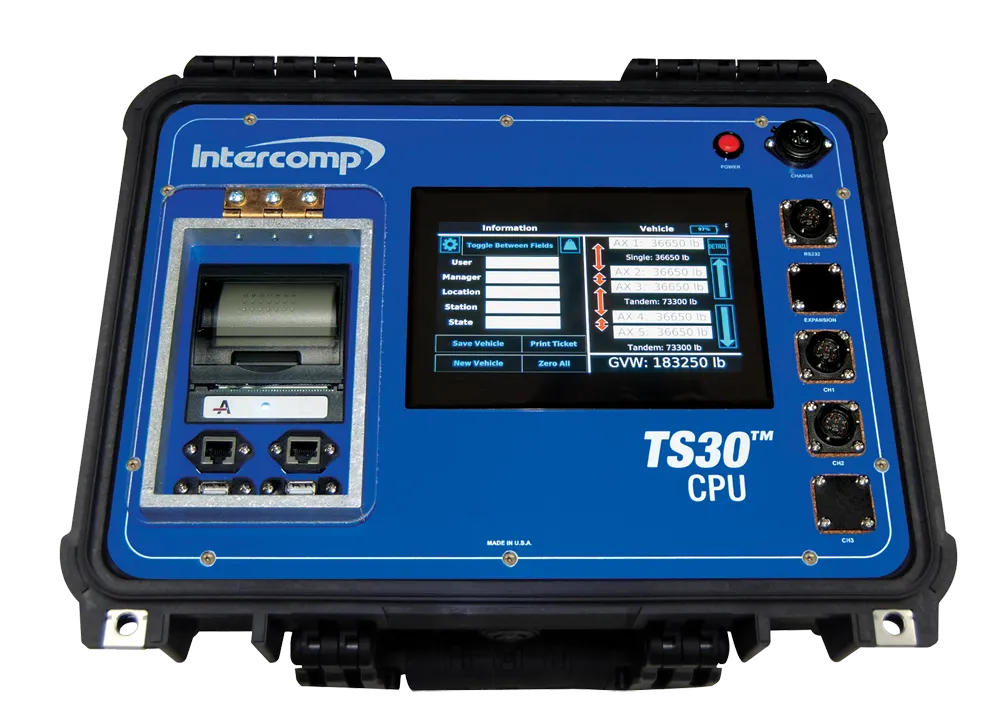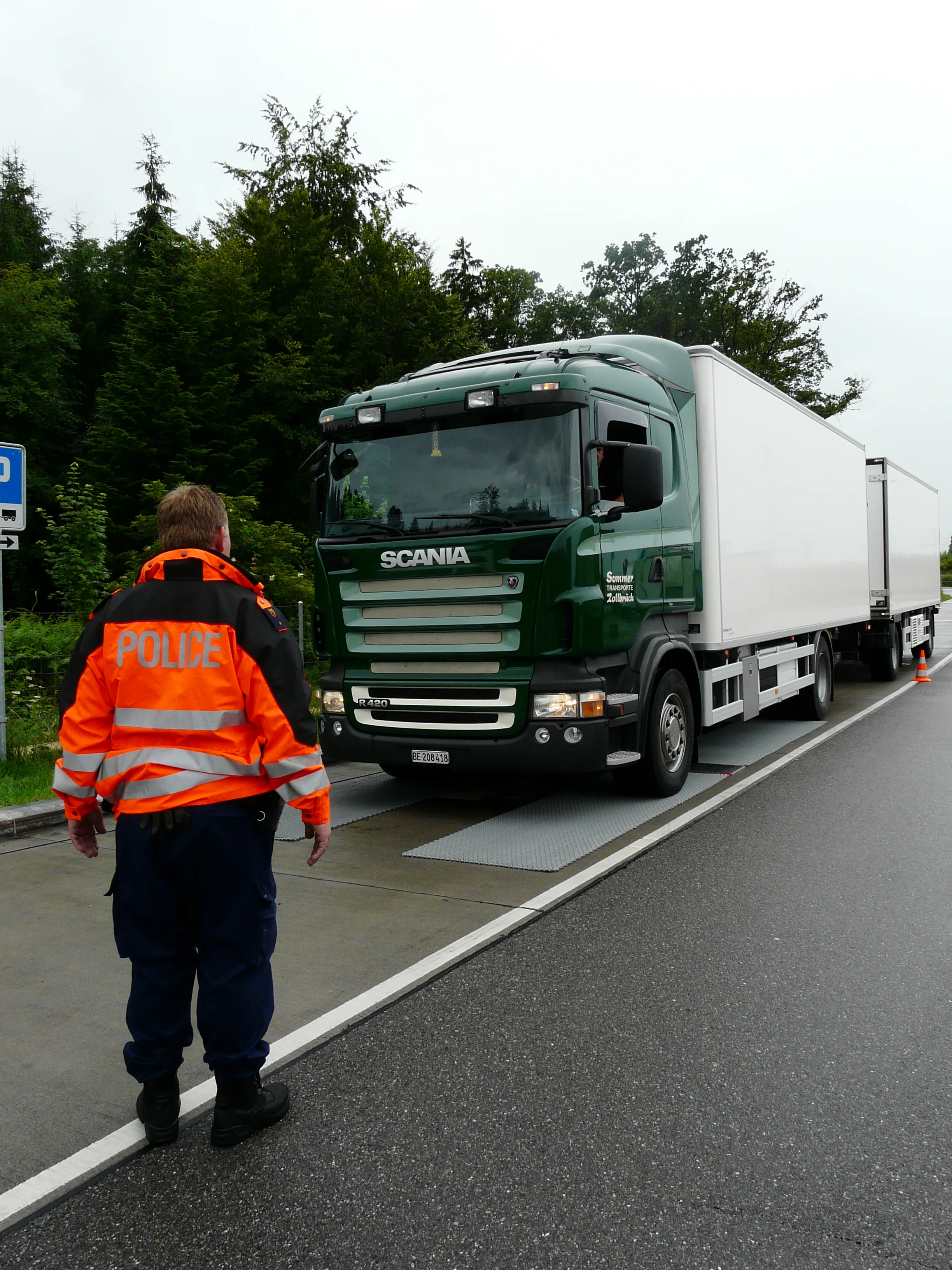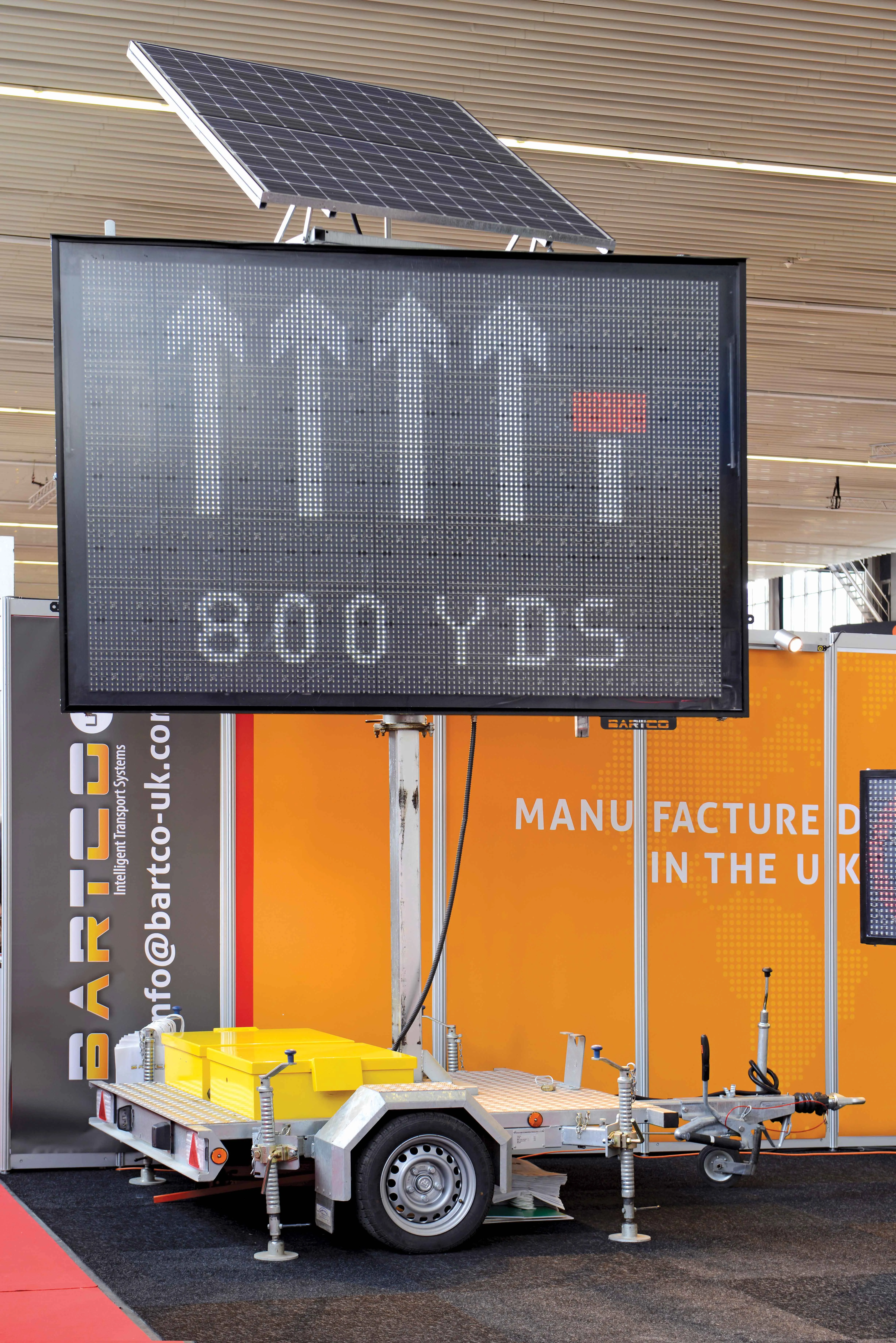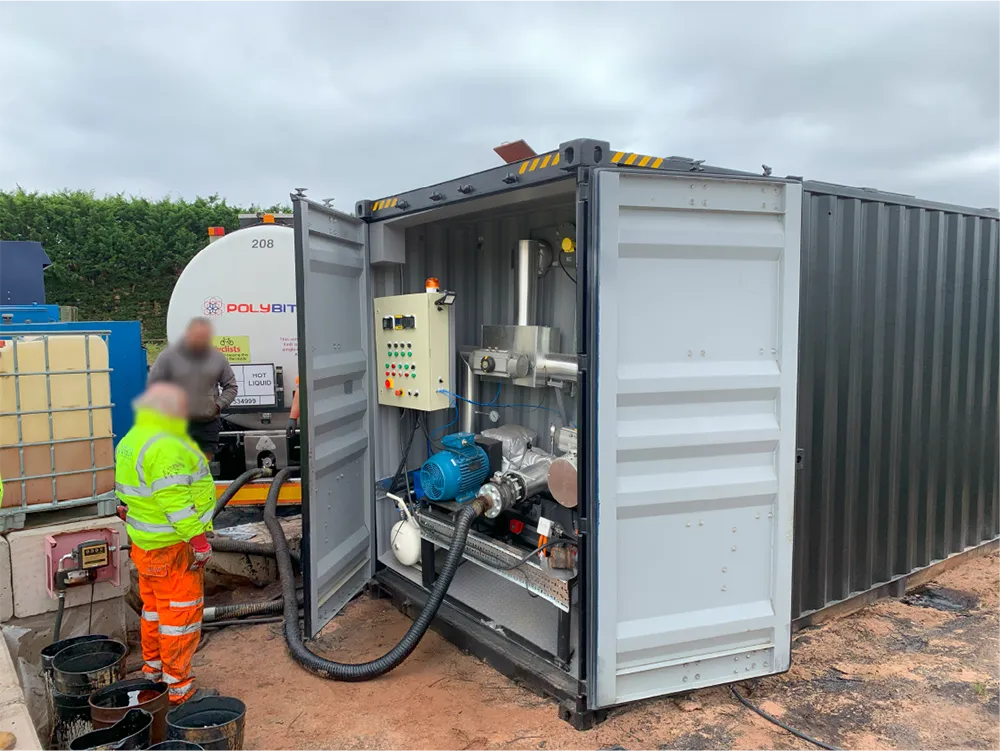
The TS30 CPU is an advanced touchscreen indicator for self-contained operation of portable scales.
NTEP stands for National Type Evaluation Programme, an approval system created by the US Department of Commerce’s National Institute of Standard and Technology and the National Conference on Weights and Measures. Any scale or balance used for sales in the US must be NTEP-approved, making it legal for buying and selling goods by weight.
The TS30 CPU’s touchscreen display and graphic user interface is housed in a rugged, standalone wireless indicator. Intercomp says that this allows operators to set up scales, weigh vehicles and create weighing records with greater speed, flexibility and operator safety.
Vehicle weight data is displayed on a single screen. Weights from wheels, axles, axle groups and gross vehicle weight – GVW - is displayed in real time. Vehicle records are printed on an integrated ticket printer or exported and downloaded.
The NTEP certification enables cable-free use of the indicator with Intercomp’s portfolio of wireless or cabled NTEP certified scales, explained Jon Arnold, market specialist at Intercomp. “Communicating via our RFX wireless technology, the CPU and scales enable safe scale operations without walking around vehicles to view and record the scales.”
Intercomp’s RFX wireless remote communication capabilities provides line-of-sight connectivity up to 90m and the ability to connect with up to 12 scales. The CPU offers onboard storage capacity for over two million separate weight records and data can be exported via multiple USB or Ethernet ports.
The CPU has the intuitive touchscreen interface, rechargeable battery, and thermal printer integrated and self-contained in a rugged all-weather case, built to withstand the demands of portable weighing operations.








